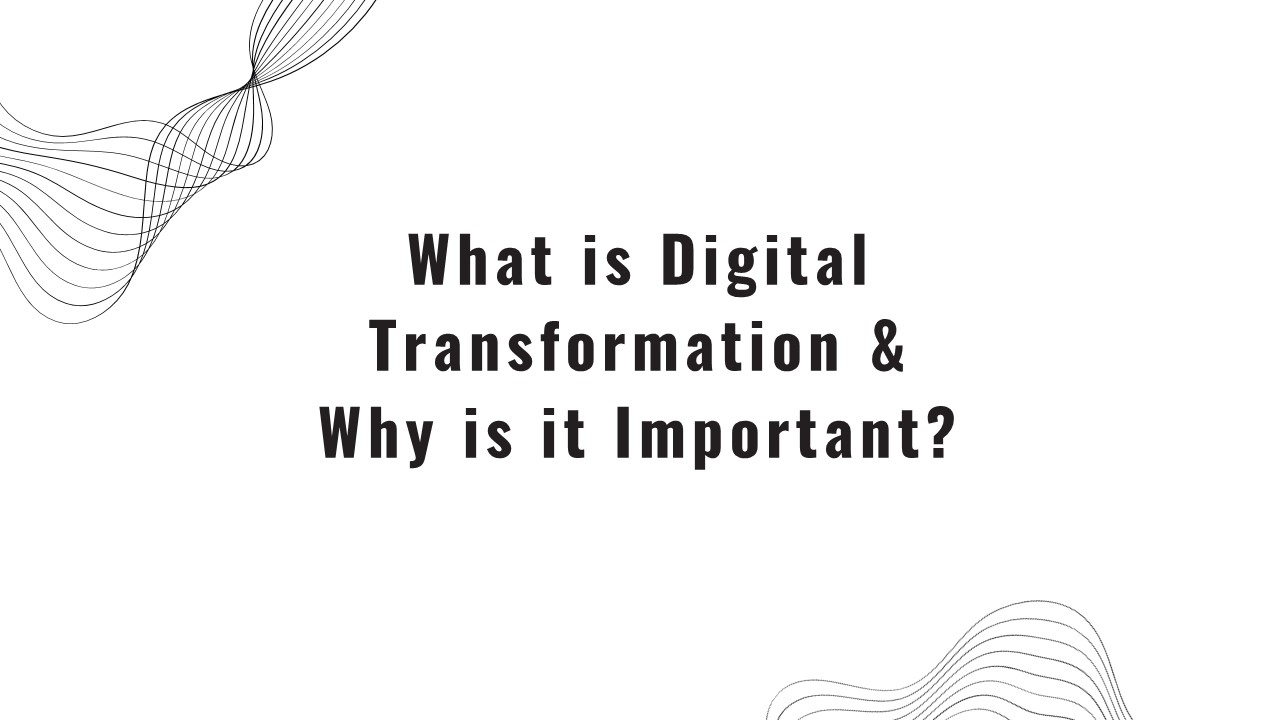Digital Transformation Strategy (1) - PowerPoint PPT Presentation
Title:
Digital Transformation Strategy (1)
Description:
Digital transformation refers to the process of integrating digital technologies, strategies, and capabilities into various aspects of an organization's operations, business models, and customer experiences to create value and improve overall performance. – PowerPoint PPT presentation
Number of Views:1
Title: Digital Transformation Strategy (1)
1
What is Digital Transformation Why is it
Important?
2
DIGITAL TRANSFORMATION CAN ENCOMPASS A WIDE RANGE
OF CHANGES, INCLUDING
Technology Integration Adopting new technologies
such as cloud computing, artificial intelligence,
Internet of Things (IoT), data analytics, and
automation to streamline processes and enhance
decision-making.
Process Optimization Redesigning and optimizing
business processes to be more efficient, agile,
and customer-centric by leveraging digital tools
and data insights.
Customer Experience Enhancement Leveraging
digital channels to create personalized and
seamless customer experiences, from marketing and
sales to post-purchase support.
3
- Innovation Encouraging a culture of innovation
and continuous improvement by experimenting with
new technologies and approaches to create novel
products, services, and business models.
- Data-Driven Insights Collecting, analyzing, and
leveraging data to gain insights into customer
behavior, market trends, and operational
performance, enabling better decision-making.
4
Agile Operations Embracing agility and
flexibility in operations to quickly respond to
changing market conditions and customer demands.
Workforce Empowerment Providing employees with
the tools and skills needed to adapt to new
technologies and work effectively in a digital
environment.
Collaboration Facilitating collaboration among
teams and departments through digital tools,
enabling better communication and knowledge
sharing.
5
WHY IS DIGITAL TRANSFORMATION IMPORTANT?
- Competitive Advantage Organizations that
successfully undergo digital transformation are
better positioned to adapt to rapidly changing
market conditions, stay ahead of competitors, and
seize new opportunities.
- Enhanced Customer Experience Digital
transformation allows businesses to create
personalized and seamless customer experiences,
leading to increased customer satisfaction and
loyalty. - Operational Efficiency Automation and digital
tools can streamline processes, reduce manual
efforts, minimize errors, and improve overall
efficiency.
6
It's important to note that digital
transformation is not just about technology it
also involves cultural, organizational, and
process changes to effectively leverage the
benefits of digital tools and strategies.































